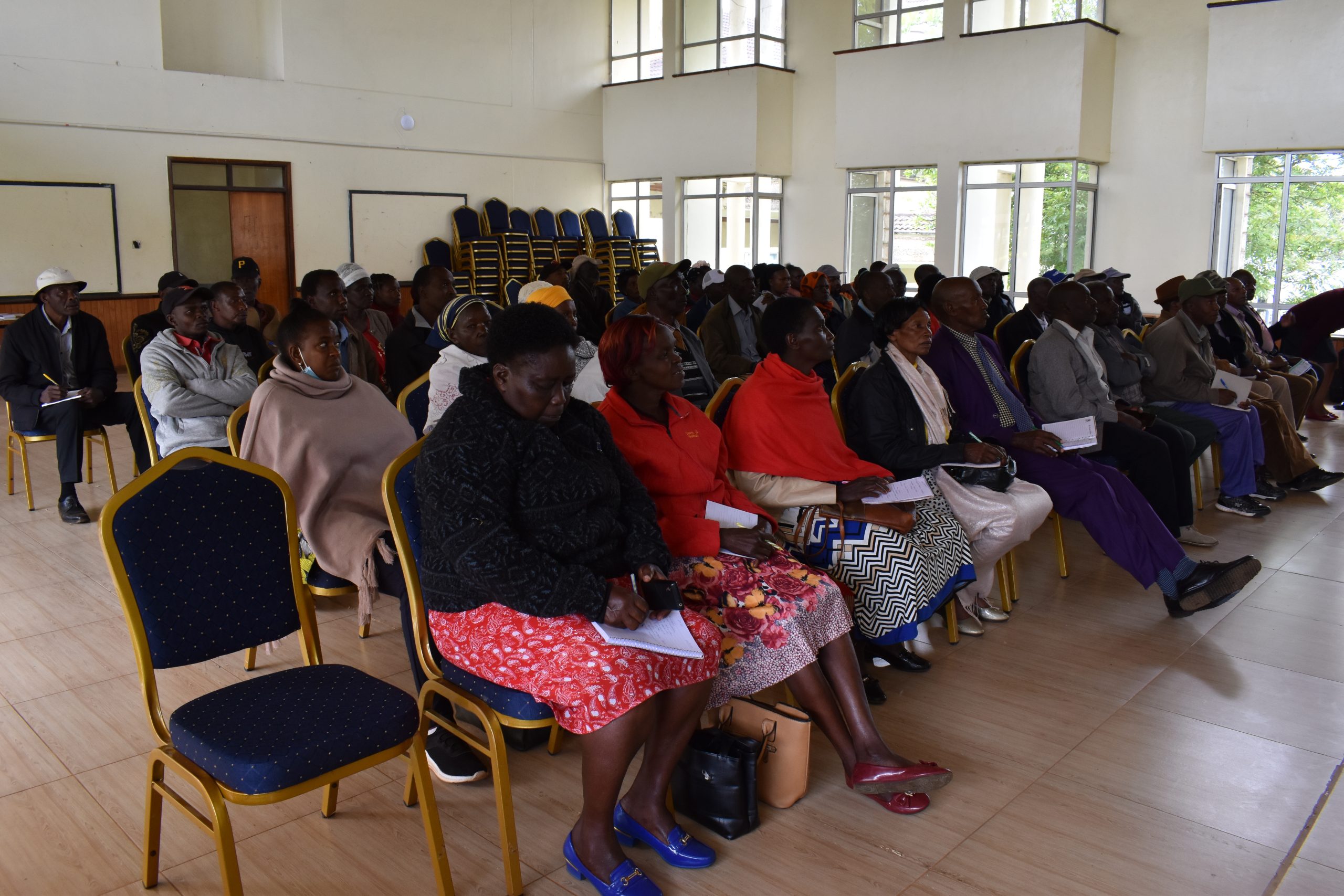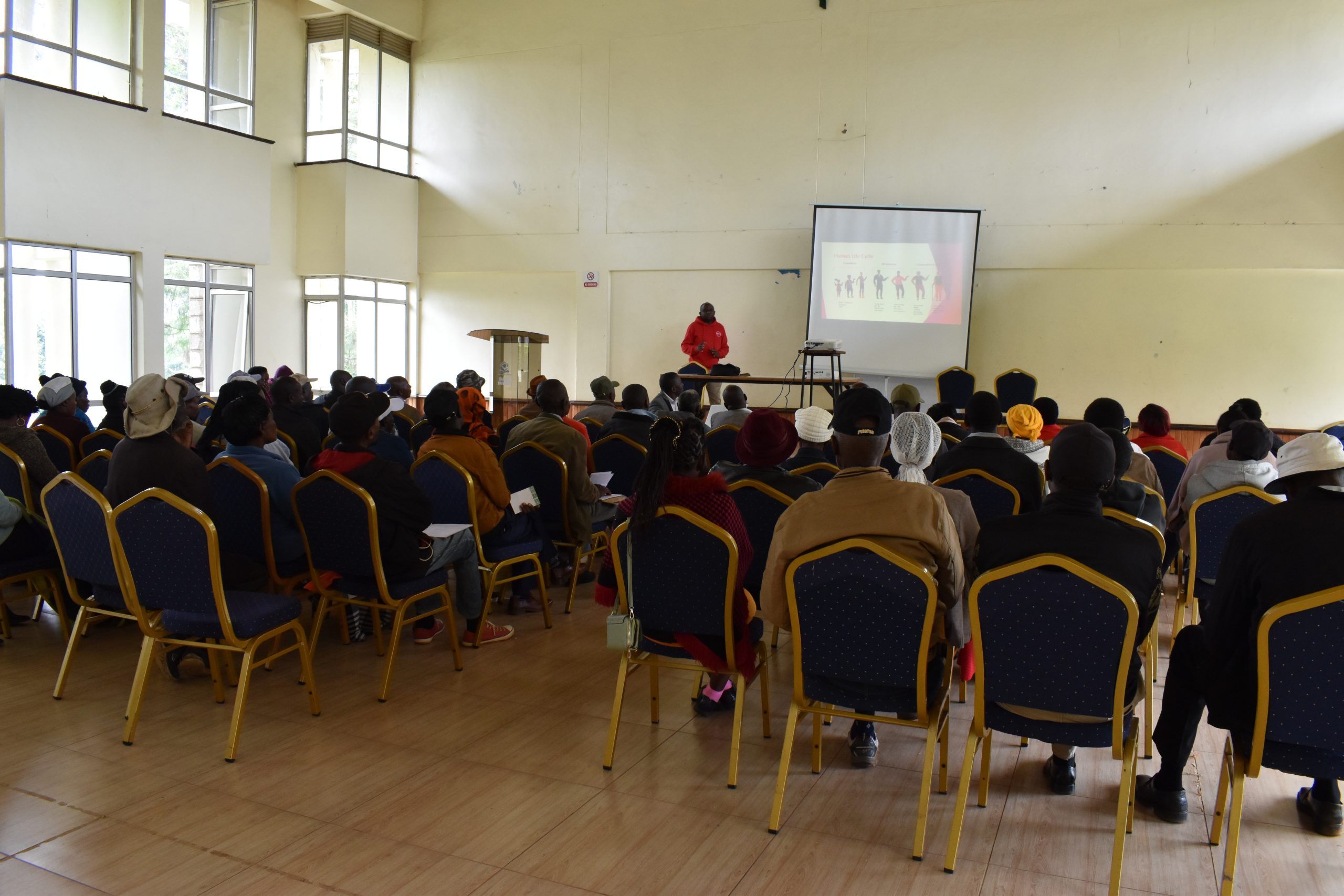
A section of farmers following proceedings of the training
Karatina University continues to play its community outreach role as it hosts a two day Farmers Training on Maximizing Agricultural Productivity on Small Holder Farms: Farming as a Business. In response to the challenge by the Acting Vice Chancellor, Prof. Linus Muthuri Gitonga, to every department/section of the University to engage in community outreach acitivities, the School of Agriculture and Biotechnology, in partnership with the ABSA Bank (Karatina Branch) is sensitizing farmers on indigenous vegetables production from today to Friday, 30th June 2023.
The Dean of the School, Dr. Grace Kamotho, said that the training is one among a series of trainings the School has organized especially before the COVID-19 pandemic period. She stated that the training is aimed at teaching farmers new agricultural technologies. Dr. Kamotho challenged the farmers to acquire seedlings from reputable sources where the seedlings have been well taken care of. She cited the Karatina University fruit tree nursersy as one source where farmers can get avocado seedlings.

Mr. Kenneth Gakuru from ABSA Bank, Karatina Branch speaking on financial management
On her part, the Acting Deputy Vice Chancellor (Academic, Research and Student Affairs), Dr. Hellen Kamiri, stated that it was important for farmers to attend such trainings in order to sharpen their skills in line with modern technologies. In view of the fact that the focus of the training is on avocado, a crop that is gaining international popularity, Dr. Kamiri encouraged the farmers to grow a variety of avocados that are selling on the international market. Particularly, she emphasised on growing the Hass avocado.
According to reports, Nyeri County is said to be grappling with increasing cases of non-communicable diseases like high blood pressure. For this reason, it is important that farmers diversify their production and grow crops which can benefit families especially in having balanced diets. Emphasis has been on indigenous vegetables which are nutritrous, medicinal and are easy to grow.
Among the topics to be covered include: Farming as a Business, Gross Margin Analysis, Avocado-Planting-site selection, hole presentation, source of seedlings, Agronomy of Avocado- identification of various types of avocado, fertilizer application, pruning, control of pests and diseases, harvesting, postharvest and marketing channels, Assorted indigeneous vegetables production, Financial Management and demonstrations on indigenous vegetables.
A total of fifty six (56) farmers, mostly from Mathira region, attended the first day of the training.





